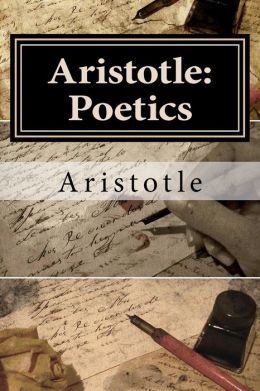A playwright is a craftsman or builder of plays. The learning is in the doing. Many well-known playwrights actually dropped out of school. Playwrights learn by the doing.
We will structure the class by approaching it from the direction of Aristotle. He wrote in 300 BC the Poetics, and he discussed tragedies and what makes the story great.
What do we, our animal self, want from a story? We want it to move us emotionally.
Aristotle split what makes the play work into six categories:
- plot or mythos (not quite the same as narrative plot),
- character or ethos (not quite the same as a dramatic character),
- thought or theme or dianoia (not quite the same as narrative theme),
- music or melos,
- diction or lexis (see also dialogue),
- spectacle or opsis,
In modern playwriting we often swap 1) and 2) in importance.
What does drama do? Drama is not an imitation of a thing but rather of an action.
For Aristotle, plot means something different than what we think of it. For him, plot means mythos. Mythos - myth or believe, or world-view perspective. For him, character means something else as well. For him, character was ethos, their a morality, their ethics, and how that affects their world view.
In modern playwriting, music could be referred to as tonality or poetry of the play.
Diction - the words we use, the type of dialogue.
Spectacle - the visuals, the set design, the location, the physical space used to convey the story. Where are the characters? What are they wearing?
Theater is defined by its limitations. It is analogous to the older history of poetry - when it was limited to meter. Aristotle's three unities:
- time - used to be required for the play to take place in 24 hours,
- place - used to required it to take place in one location,
- action - used to require it to have only one plot line (no B-story or C story).
Over the course of the two-hour drive from Birmingham to London, Locke holds a total of 36 phone calls with his boss and a colleague, Donal, to ensure the pour is successful, with his wife Katrina to confess his infidelity, his son, and with Bethan to reassure her during her labour. During these calls, he is fired from his job, kicked out of his house by his wife, and asked by his older son to return home. He coaches his assistant Donal through preparing the pour despite several major setbacks, and has imaginary conversations with his father, whom he envisions as a passenger in the back seat of his car. When he is close to the hospital, Locke learns of the successful birth of his new baby.
We see then that Aristotle's time, place and action requirements are satisfied with Locke.












